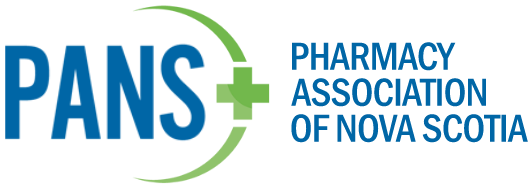For Immediate Release
Dartmouth, NS - A recent study shows that comprehensive care provided by pharmacists to patients with high blood pressure can increase patients’ life span while providing significant savings to the health care system.
The study, performed by Dr. Carlo Marra (School of Pharmacy, University of Otago, New Zealand) Dr. Karissa Johnston (Memorial University, Newfoundland and Principal at Broadstreet HEOR), Dr. Valerie Santschi (School of Nursing Science, University of Applied Sciences Western Switzerland), and Dr. Ross T. Tsuyuki (Faculty of Medicine and Dentistry, University of Alberta) found that in cases where pharmacists were able to work to their full scope of practice (providing patient education and adjusting or prescribing medications) patients had fewer cardiovascular events (such as a stroke or heart attack) and lived longer.
Over a period of 30 years, this means that in Nova Scotia there could be:
- 4,166 fewer strokes
- 8,249 fewer heart attacks
- 2,382 fewer cases of angina
- 2.184 fewer instance of heart failure
- An additional 30,000 years lived
There are 166,000 people living with hypertension in Nova Scotia. The burden on society is enormous both in health and economic terms. In 2015, 28% of adults in Nova Scotia were living with hypertension and this number is expected to rise to 39% by 2030. Being able to improve these numbers even slightly would result in countless lives saved.
Although there is a cost for the pharmacists’ interventions, the savings to the health care system were far greater than the costs of providing the pharmacists’ services. The study found that $490 million dollars would be saved over a period of 30 years. There would be $39 million in savings in just five years.
“We are pleased to see that the study confirms what we hear every day. Pharmacists are a valuable member of the health care system and important to patient care,” says Rose Dipchand, Chair of the Board, Pharmacy Association of Nova Scotia. “It’s fantastic to see independent research like this that shows the economic impact of those services as well.”
Nova Scotia has some of the highest rates of chronic illnesses in Canada, with high blood pressure, heart disease, COPD, and diabetes having the greatest incidences. Knowing the impact pharmacists can have on improving health outcomes for their patients, the Pharmacy Association of Nova Scotia is doing additional work to measure the impact pharmacist interventions can have on patients with the most common chronic illnesses in this province. The study will take place over a twelve month period starting this summer across Nova Scotia.
To further understand the financial savings that pharmacists can provide the health care system, a new online tool has been developed in which people from across Canada can see the savings that pharmacists can provide in their home province. The tool can be found at: http://pans.ns.ca/bpstudy
The Pharmacy Association of Nova Scotia is the advocacy body for more than 1,300 practicing in Nova Scotia. Members work in many areas of practice, including: retail pharmacies, hospitals, academia, research, and government.
For more information, please contact:
Amy Wagg
Director of Communications
Phone: (902) 422-9583, ext 4
Email: amy@pans.ns.ca
